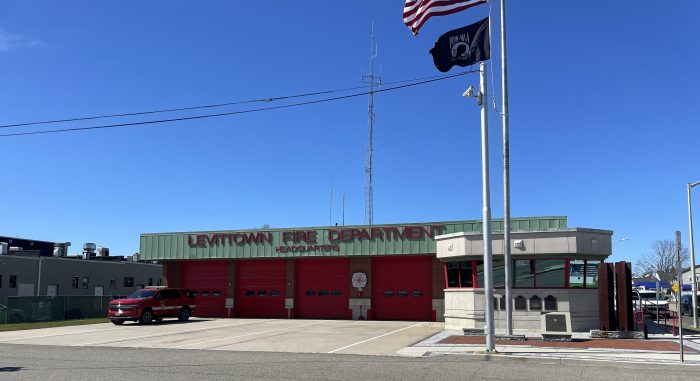Brookhaven National Laboratory, one of the oldest and most respected research institutions on Long Island, may soon be in the forefront of the nation’s newest technology – Artificial Intelligence, or AI.
BNL in Upton, in Suffolk County, is on a short list of U.S. Department of Energy-controlled sites that could be home to artificial intelligence data centers and related infrastructure development, according to a recent filing by the DOE.
The DOE issued a request-for-proposals to 16 sites across the country, to be returned by mid-May. The DOE said in its filing that it hopes to begin operation of the AI data center by the end of 2027.
DOE said the site that is ultimately selected would mostly be making land available for such a facility, but it may benefit by having access to the data center.
“The United States has long been at the forefront of artificial intelligence,” the DOE filing said. “Maintaining that leadership is a key national and economic security priority.”
“The U.S. Department of Energy is exploring opportunities to leverage its land assets to support the growing demand for AI infrastructure,” the agency filing continued.
Regarding Brookhaven Lab, the agency said it is considering building a 90-acre-plus Artificial Intelligence data center in wooded areas of the 5,322-acre BNL site. The center would be in BNL’s special “Discovery Park District.”
DOE is seeking input from data center developers, energy developers “and the broader public to further advance” the project.
The DOE said that BNL is in “close proximity” to the existing Caithness Long Island Energy Center. That, the filing said, could be the site of a new 750 megawatt gas turbine plant for the proposed Artificial Intelligence data center.
The DOE owns and operates the BNL site, which is managed by Brookhaven Sciences Associates.
Read also: Roslyn teen makes millions from calorie-tracking app Cal AI
Brookhaven National Lab has played a major role in Long Island’s technology industry for decades, as well as serving as a major employer in the region, with a staff of 2,500 scientists, technicians, engineers and support personnel.
Like other parts of the country, Long Island is seeking to develop its Artificial Intelligence capabilities. There are several AI companies on the Island now, but a large data center would put the region at the forefront of the Artificial Intelligence industry nationwide, said Martin Cantor, director of the Long Island Center for Socioeconomic Policy, in Melville.
“AI is here to stay,” Cantor told the Press. “It’s going to be the future of the workforce.”
“I think this is tremendous,” Cantor said of the possibility of an Artificial Intelligence data center on the grounds of BNL. “It will be a boon for the Long Island economy.”
Cantor said jobs at such a facility would be permanent and high-paying.
“This would put us smack in the middle of the AI boom,” Cantor said.
A BNL official declined to comment.
The competition will be stiff. Other sites expressing interest include the prestigious Los Alamos National Laboratory, the Fermi National Accelerator Laboratory and the Oak Ridge National Laboratory.
But Long Island may have an ace up its sleeve. Former Suffolk Republican Party Chairman John Jay LaValle, a firm supporter of President Donald J. Trump, has been named White House liaison to the DOE, according to the Federal Newswire. LaValle, of Port Jefferson, has also served as a Brookhaven town councilman.
A new AI data center could be another way to accelerate such key technologies as geothermal and energy storage, both backed by green-energy proponents on Long Island.
BNL, opened in 1947 at the U.S. Army’s former Camp Upton, was established to seek peaceful applications for atomic energy. It has gained worldwide attention for its Relativistic Heavy Ion Collider and National Synchrotron Light Source II. The Collider helps study the primordial form of matter that existed in the universe shortly after the Big Bang. The Light Source supports research in energy security, advanced materials synthesis and manufacturing, the environment and human health.
The DOE filing said that scientists at all of the 16 sites “are charged with addressing the most critical energy, security and science challenges of our time.”


































